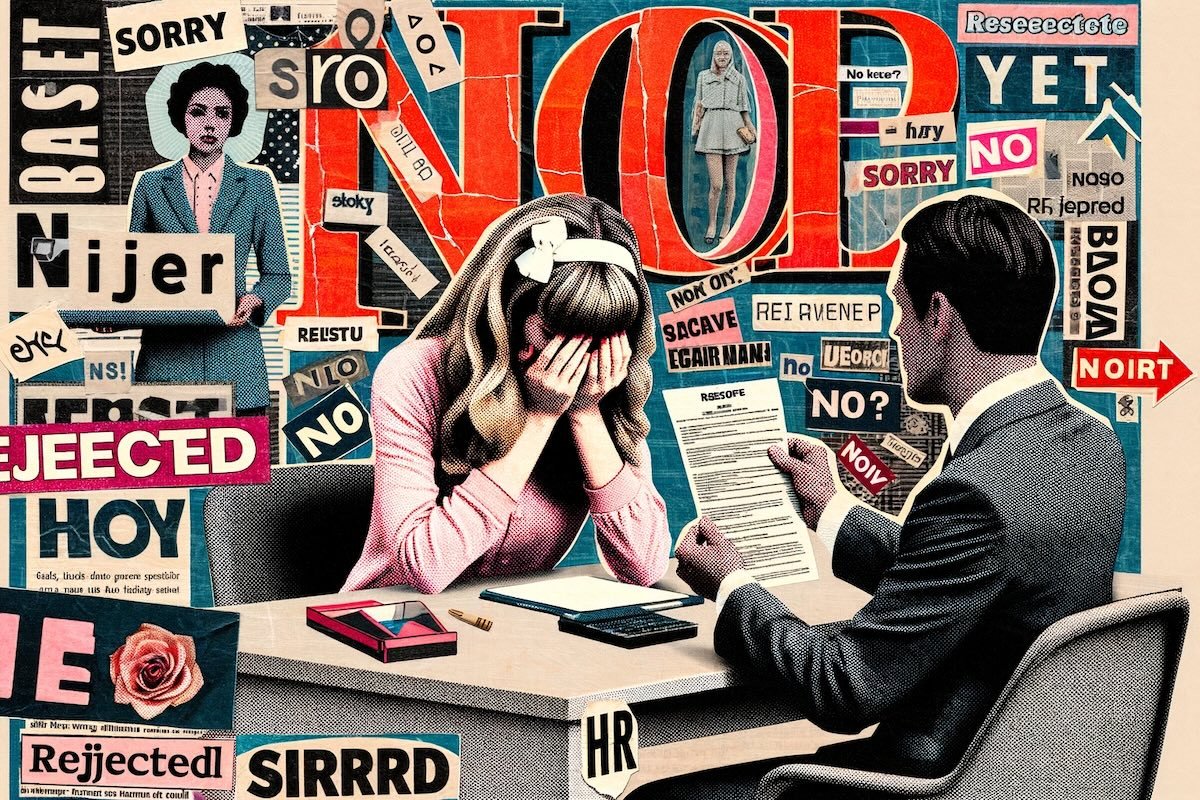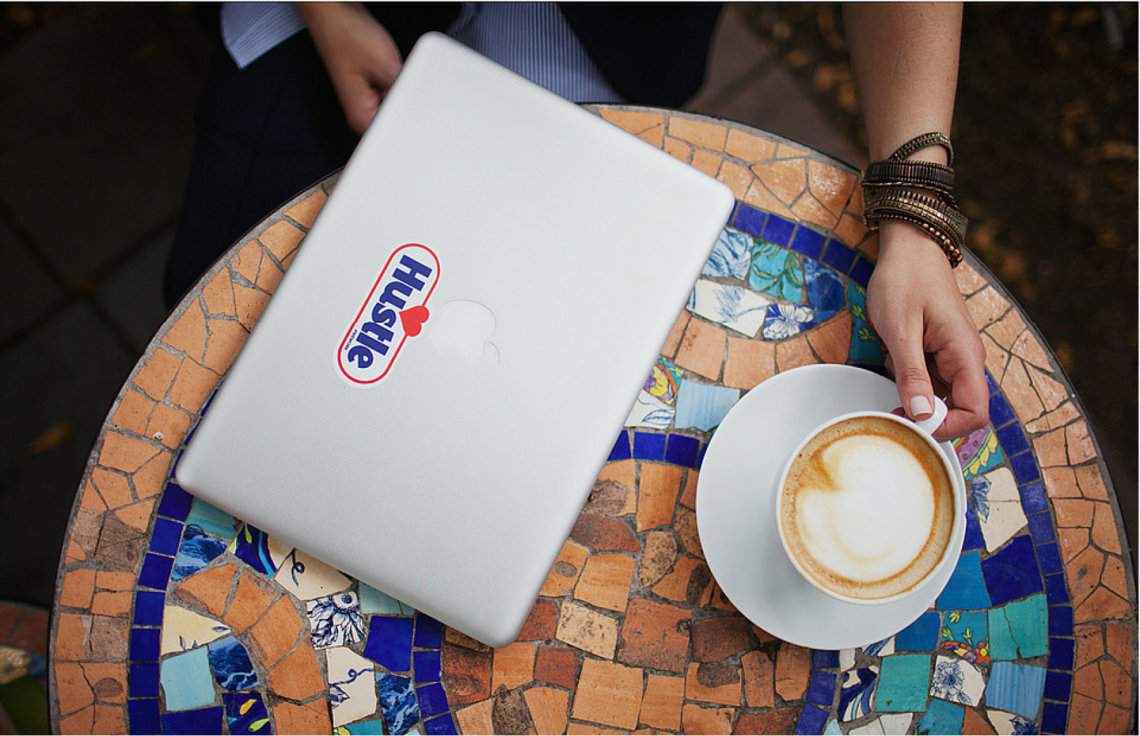"Describe a challenge or conflict you overcame."
In this article, we are tackling one of the
behavioral questions you will likely come across in your next job interview, "Describe a challenge or conflict you overcame."
Table of Contents
Having good conflict resolution skills is important to prospective employers. All workplaces come with different opinions, personality types, and points of view that might differ from yours. If you get upset anytime you encounter workplace conflicts vs. being proactive about creating solutions, a hiring manager might wonder if you're a good fit for the role.
Before we talk about how to answer, here are a few things you might not want to say, including avoiding the question altogether. Don't say something like, "Well my
last boss was horrible, so I quit," and don't simply describe a challenge without offering how you engineered an effective solution.
This prompt exists in interviews to root out how you're a
problem-solver, a team player, and a creative thinker. Remember those attributes when formulating your answer to this behavioral interview question.
Why Interviewers Ask This Question
For starters, the recruiters and interviewers will get insight into what exactly you see as a challenge. They also get to gauge your interpersonal skills for dealing with conflict at work.
Next, interviewers love this because it actually provides them a ton of information from just one question including how you tackle challenges, what your
problem-solving skills are, how resilient you are to adversity, the qualifications you have for handling a dispute, how quickly you can recover, and what the results, accomplishments, or outcomes are when challenges land on your desk.
Additionally, they learn about your
interpersonal and communication skills. Who do you go to for advice when things aren't planned? And how well are you able to take their feedback and translate it into action.
See? So much information is communicated to your interviewer in this question. That's why it's incredibly important to prep a few scenarios before you sit down to share.
How To Answer "Describe a Challenge Or Conflict You Overcame?" In a Job Interview
We love a step-by-step method, so that's why we put this one together specifically for this prompt.
Before we go into actionable items, here's a little tip to start.
Be honest in your answers.
Humility—especially when coupled with a positive outcome—goes much further than an outright brag or a humble brag.
Everyone has flaws and areas of improvement as an employee—from your entry-level employee to your seasoned C-level executive. This prompt is a great area to attack challenges you recognized,
flaws that you overcame, and lessons you learned in your previous jobs.
Finally, consider taking the following three-step method and flopping it on its head. Start with the solution (or the happy ending) and reverse-engineer how you landed there.
Here is our three-step method to describe a challenge or conflict you overcame.
1. Describe the challenge + what was at stake
Describe the challenge that you encountered. If the challenge or conflict was not extremely obvious, then also explain to the interviewer how you recognized that there was a problem.
This sort of
proactive problem-solving is a very attractive skill in an employee. Finally, explain what could have been at stake if the problem persisted.
When deciding what conflict you want to share in the interview, focus less on personal challenges and more on professional or workplace challenges.
The job description is like a cheat sheet that tells you what are
the most important skills required for the job. If the job description mentions project management, use a challenge that showcases your amazing project management skills.
Example: In my last position, I recognized that our freelance budget was not being used properly, resulting in dozens of hours of overtime for freelance work every week. Our marketing budget needed to be tightened to reach our lofty goals for the quarter.
2. Explain what steps you took to solve the challenge + why
Next, describe the steps you took to overcome a problem to build a real solution.
This is where you can show off your
creative and proactive solutions in action. You'll also be illustrating your thought process or approach to challenges, which is definitely something the interviewer is interested in.
Example: To solve this overpayment, I took stock of all the freelance jobs we had given in the past six months. I noticed that certain freelancers' work outperformed others by a large margin. I created a report to show my manager which freelance workers were performing best.
3. Conclude by detailing the positive outcome
This is where you detail the outcome and all of its
positive impact. If you want to add some extra flair, you might consider adding a sentence or two about what would have happened without your solution.
Would people have quit their jobs? Would you have lost an important client? Did you clear up a large portion of an unyielding budget?
Remember hiring managers want to work with people who can identify and solve problems. Ideally, your anecdote will have a positive conclusion.
Example: With this report, I created a plan to hire the highest-performing freelancers for monthly, repeatable work. In this way, they were familiar with the brand, the tasks, and they had real ownership of the results, which helped out the marketing initiative greatly. In addition, our main goal of reducing our marketing budget was also achieved—as I reduced it by 22 percent.
Example Answers to "Describe a Challenge"...
When Your Challenge Is With People Inside Your Company
"In my last role, I was hired as an administrative assistant and was quickly promoted to head of operations because of my strong organizational skills. However, this also meant that my older and more tenured coworkers would now need to report to me.
The challenge I faced was that I was replacing a beloved manager and I was still pretty new to the role, but I wanted the respect of my colleagues. So, I set up 1:1 meetings with each person to learn the ins and outs of their job. And created an anonymous survey to make sure I learned as much as I could about what worked and what didn't work for the team.
I then presented my findings in a team meeting and, together, we set quarterly goals. One of those goals was to create a more efficient process for generating reports. I found a new software program that I implemented and trained the team on which saved them time each month, created reports in a timely manner, and allowed me to show the team that I respect what they've built and would like to continue to support their goals as well in my new role."
When Your Challenge Is Personal
"A few years ago I worked in recruiting and each month I had a new hire quota I had to meet. For 18 months I never missed my quota and then I had six months straight of missing my goals.
I decided I needed to get advice from the more seasoned recruiters on how they ensure they don't miss hiring goals. My biggest takeaway is that they spend about half of their time developing and nurturing a pipeline of candidates. Since I didn't build a pipeline yet, I decided to focus on that.
Once I did that, I never missed another new hire quota and I stressed way less because I had a growing pipeline."
When You Challenge Is With People Outside Your Company
"In my current role, we were hosting an event and hired a professional speaker. Before we hired the speaker, I made sure to fully explain our expectations, including content, payment, and what expenses we would cover.
After the event, we got a bill from the speaker for expenses we didn't agree to cover, however, the speaker thought we would and she said that's why she agreed to the speaking gig in the first place.
I realized that I should have put everything in writing and created a speaker agreement that we both signed but since I didn't, I agreed to the additional expenses to keep a good relationship with the speaker.
I learned a lot from the experience, and now we have legal agreements with any outside vendors."
Sample Answers for Other Behavioral Interview Questions Regarding Conflict
What about all the variations of this type of question?! This refers to the times when the interviewer asks you about challenges or conflicts using a different interview prompt.
Our best advice is to remember that a great way to answer these types of behavioral interview questions is to use the
STAR method or STAR approach.
STAR stands for situation, task, approach, and results and it's a framework that you can follow to lay out your answer. Let's use a few specific examples of conflict situations to show what this looks like in an interview answer.
Tell me about a time you faced a conflict at work.
S: In my last job working in admissions for a university we were behind in reviewing applications for the incoming class. This meant facing lots of angry parents and anxious students and our customer service teams were overwhelmed.
T: I was in charge of finding a way to communicate our process and timeline to these families so we could lessen the time the customer service team was spending on the phone.
A: Although I sent out a letter and email to communicate our delay, the customer service team was still overwhelmed with daily phone calls.
R: After consulting with management and our technology team, I created an online process where a person could input their name and it would tell them their status. We also set up an auto-message for customer service alerting people of this tool. This dramatically cut down on the status update calls and it allowed up to keep communication updated quickly without relying on mailed letters and emails.
Tell me about a time when there was a rule, policy, or procedure at work that you disagreed on, and what you did
S: I recently disagreed with my manager's PTO policy for the summer. Summer is our slowest time, and many people were planning trips to make up for lost vacation time during Covid. Our manager wanted to implement a rule that we had to put in our PTO request at least two months in advance.
T: I was facing a potentially disgruntled team if I implemented this rule and with a tight labor market, I didn't want to create toxicity around time off especially during our slower months.
A: I approached my manager for a compromise. I know she wanted to make sure we had coverage while being out on vacation and I also knew that our team wanted to take PTO but might not be able to plan so far ahead. The compromise would address both of these challenges.
R: I outlined a summer PTO policy that asked for 14 days of advance notice and required the person to share the coverage that would be included for their role while they were out. This meant they could take PTO more often as long as they communicated how the work would be covered. This actually encouraged the team to work together more and cross-collaborate more, which was also great for team morale! In the end, everyone on the team took some well-deserved PTO, and our work product wasn't heavily impacted.
Tell me about a time you had a problem with your colleague.
S: In my current role we have a coworker who is terrible at remembering to cross off tasks when they are done. This slows down our whole process because we use the completion of a task to start another. It's how we keep the project timeline correct.
T: I took the initiative to approach him and find out why he was struggling with this part of the process.
A: After running into some disagreements about our team's process and workflow, I offered an alternative solution that would help him complete his tasks—and make sure it didn't slow down the rest of us.
R: In the end, we started putting all of our projects and assignments into a specific project management tool. We specifically looked for a tool that included reminders and allowed us to assign completion dates. This helped tremendously and after we onboarded a project, saved us time in figuring out where we were in our timeline.
How do you handle conflict in the workplace?
S: I know not all personality types work well or understand how the other one works best.
T: For this reason, I anticipate conflict and try to plan ahead by creating and communicating structure on the team.
A: One of the first things we created is an employee resource group that includes expectations, policies, and resources for how to resolve workplace issues. We also have each team regularly meet to discuss processes, engage in personality training, and use tools like communication guides to help us listen and better understand each other.
R: By normalizing conflict and making it a thing we regularly talk about, I think it's made handling conflict less nerve-wracking. We're also learning and adding more conflict tools to our skillsets which helps us when dealing with clients, customers, etc.
When in doubt about how to come up with the best answer to conflict interview questions, use the STAR format to share your perspective. As you can see from these examples, the framework sets you up to showcase your competency without losing the interviewer in a long, complicated answer.
Plus, who wouldn't want to hire a person who can stay calm, not let emotion get the best of them, and create common ground for the overall success of the team, project, client, etc?!











